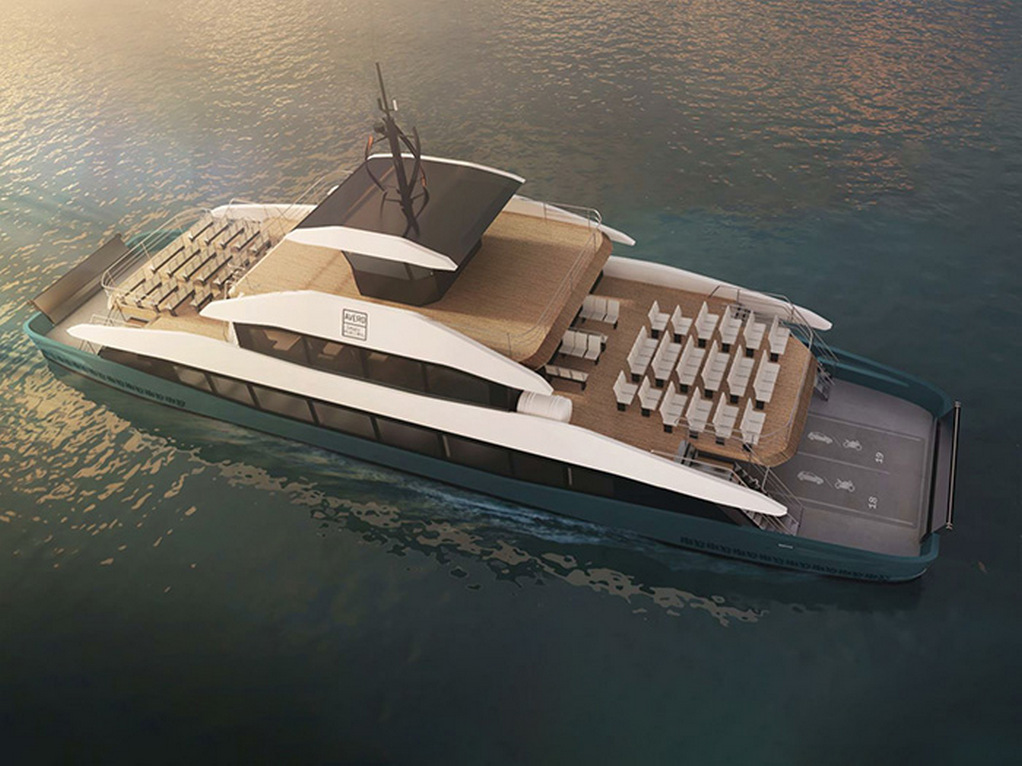Portugal’s first all-electric car/passenger ferry is to have a fully autonomous charging solution supplied by Norway’s Zinus AS.
Ordered by the Municipality of Aveiro from shipbuilder Navaltagus, the vessel will be 37 meters long and propelled by dual azimuthing thrusters and will be able to carry up to 260 passengers and 19 cars. It will operate on a 1.5 kilometer long route between Forte de Barra and São Jacinto.
It will be classed by Bureau Veritas as a battery-system operated passenger vessel (✠I 5 (Z)•MACH Passenger vessel / Ferry / Battery system / IN (0.6)).
Equipped with two 246 kWh battery packs, the ferry will replace an older vessel that emitted over 300 tonnes of CO2 annually. By using battery power, the new ferry will eliminate harmful emissions, improve onboard comfort, limit onboard noise, and reduce overall energy consumption by 30%.
Zinus’s delivery consists of two ZPP 550 charging towers that will be placed onshore, as well as one SWC 100 charging connection to be installed on board the ferry. The Zinus solution was selected as the best alternative based on its light weight, small footprint, and operational advantages.
Zinus is also involved in the electrification of 10 passenger ferries operating on the Tagus River in Portugal’s capital of Lisbon. The company is in process of delivering a total of 20 SWC 100 charging connections for this project and was recently also awarded a contract to deliver five ZPP 700 charging towers, which will be installed at passenger terminals along the river.
Tags: Charging, E-ferry, Navaltagus, Zinus



Recent Posts
Egypt Advances Maritime Decarbonisation with National Action Plan Backed by IMO
Fuelre4m unveils VIRDIS: A predictive AI breakthrough in global fuel distribution, powered by Five9nes
EXMAR Launches First Ammonia-Fueled Gas Carrier at HD Hyundai Mipo
Japan-Backed Green Hydrogen Centre Planned for Uttar Pradesh
JSW Group Outlines Major Push into Commercial and Heavy Electric Vehicles
Lloyd’s Register Grants Approval in Principle for KSOE’s Multi-Fuel Newcastlemax Bulk Carrier Design
Eureka Shipping Deploys HVO-Ready Cement Carrier Tamarack for Great Lakes Operations
Terntank Places Repeat Order for VentoFoil Wind Propulsion Units on Methanol-Ready Hybrid Tankers